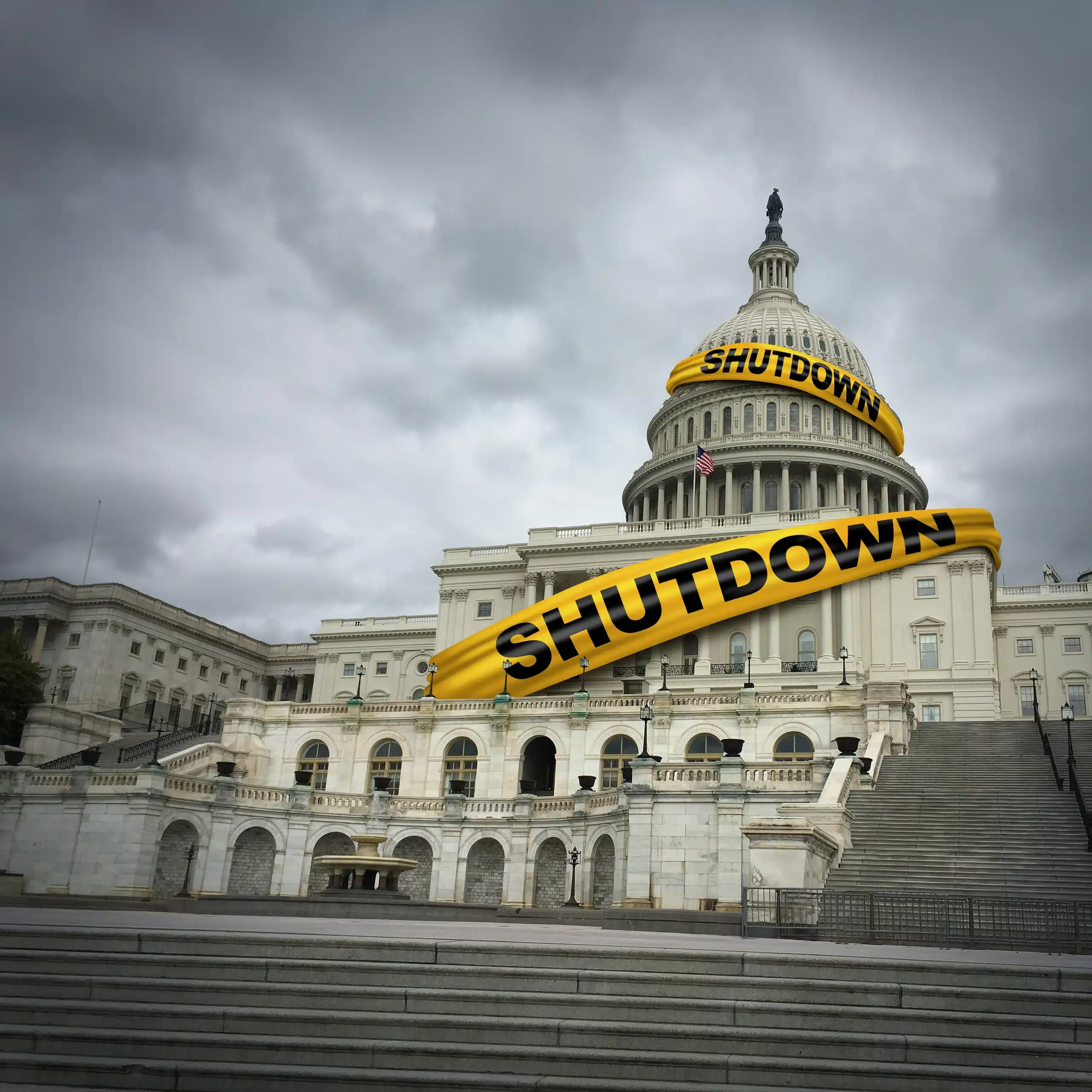RECENT POSTS
Categories
From Capitol Hill to Your Wallet: The Government Shutdown’s Impact on Social Security Benefits
A government shutdown, a term often splashed across headlines, can evoke a sense of unease and uncertainty, particularly for those who depend on government-backed services for their well-being. For many, the immediate question that arises is: What does this mean for me? Especially for individuals who lean on crucial programs like Social Security, understanding the implications of such a shutdown becomes paramount. Whether you're a current beneficiary or someone planning for the future, it's essential to be informed about how these political events might touch your life.
What is a Government Shutdown?
A government shutdown occurs when Congress fails to pass, or the President fails to sign, appropriations legislation to fund government operations and agencies. This can happen due to disagreements on spending, policy, or other contentious issues. Ideally, Congress should pass all required appropriation bills before the start of the fiscal year on October 1. If the regular budget process is followed, a shutdown can be avoided.
If Congress cannot agree on a budget or specific appropriation bills by the deadline, it can pass a continuing resolution (often shortened to "CR"). A CR provides temporary funding for government agencies at current or specified levels to give Congress more time to finalize a budget.
How Does a Shutdown Impact the U.S. Government?
If a shutdown occurs, it will mean that some government agencies and programs that are considered non-essential will be closed or operate at a reduced level.
Essential services, such as national security, law enforcement, and air traffic control, continue to operate during a shutdown. However, non-essential services, such as national parks, passport processing, and scientific research, are typically suspended.
Here are some specific examples of what may happen during a government shutdown:
National parks may be closed or operate with limited staff.
Passport processing may be delayed.
Small business loan applications may take longer to process.
Scientific research may be suspended.
Government websites may not be updated.
Government benefits, such as Social Security and Medicare, may continue to be paid, but there may be delays in processing new applications or changes to existing benefits.

What is the Impact on Social Security Benefits?
Social Security benefits fall under mandatory spending, ensuring they remain unaffected by government shutdowns. Since they're funded by a dedicated trust fund, separate from annual congressional appropriations, the Social Security Administration (SSA) retains the authority to disburse payments. It is important to note that you do not need to take any action to protect your benefits.
The SSA has prepared a contingency plan so in the event a government shutdown occurs, the SSA will continue to operate. The contingency plan includes:
Application for benefits (including appointments, limited data exchanges and record corrections, including claims-related earnings for mandatory benefits)
Requests for appeals (reconsiderations, hearings, Appeals Council)
Post-entitlement actions (changes of address, Supplemental Security Income living arrangement changes, non-citizen verification/changes, direct deposit, death inputs, processing of remittances for overpayments and administrative fees, etc.)
Non-receipts and critical payments
Payee changes
Direct contact reinstatement of benefits
Issuance of original and replacement Social Security Cards
Prisoner activities - beneficiary-initiated reinstatement of benefits only
Program integrity workloads (redeterminations and continuing disability reviews (CDR)) due to extended availability of appropriations
Initial claims, including terminally ill, compassionate allowances, quick disability determinations, dire need, and wounded warriors
Reconsiderations
Assistance requests for hearings
Hearing Cases
Deciding Cases
Drafting relevant notices for claimants
Preparing electronic records for claimants and representatives
Identifying missing evidence and developing the record
Exhibiting case files for administrative law judges
Decision writing
Screening cases for on-the-record decisions
Scheduling hearings
Hearing appeals
Deciding appeals
Conducting quality assurance review activities related to allowances
If a government shutdown occurs, the following is a list of SSA activities that will be discontinued until the shutdown ends:
Benefit verifications
Earnings record corrections and updates
Payee accountings
Prisoner activities - suspension
Requests from third parties for queries
Freedom of Information Act (FOIA) requests
IT enhancement activities, public relations, and training
Replacement Medicare cards
Overpayments processing
End-of-line quality assurance reviews
Conducting quality assurance review activities other than those related to allowances
Processing bias complaints from claimants and representatives
Responding to congressional inquiries regarding support for casework on constituent hearings and appeals
Conducting all activities dependent on Operations support, including enrollment of appointed representatives for eFolder access
Responding to FOIA requests and public inquiries
Providing training and IT support or enhancements for hearing offices
If you're in the process of applying for SSDI or SSI benefits or appealing a denial, you may experience delays in the process, but rest assured your benefits request or appeal will move forward.
Get Expert Support for your SSDI & SSI Appeals
If you're trying to navigate the SSDI or SSI application process, especially during uncertain times like a government shutdown, know that you're not alone. Our law firm specializes in helping individuals appeal denials for SSDI and SSI. We're here to guide you every step of the way and to ensure you have the support you need.
Wettermark Keith, with offices located throughout Alabama, Tennessee, and Florida, has an excellent reputation as one of the most accomplished personal injury firms in the country. Our reach is not only regional but includes a diverse range of practice areas, including premises liability law, personal injury cases, auto wrecks, trucking wrecks, nursing home abuse, medical malpractice, on-the-job injuries, social security disability, and veterans’ disability claims, to name just a few. At Wettermark Keith, we believe in taking cases personally. Our purpose is to practice with care and compassion- to tell our clients’ stories and make their voices heard. We do this by building strong relationships based on constant communication and an unwavering dedication to truth and trust. You should never wonder what’s going on with your case. We will keep you in the loop and represent you as if you are family- because to us, you are.
Frequently Asked Questions
The duration of a government shutdown can vary, with some lasting just a few hours and others extending for several weeks. It all depends on how quickly Congress can come to an agreement on budgetary matters and pass a spending bill, or for the President to sign such a bill into law. While the U.S. has seen a range of shutdown lengths in the past, it's important to remember that many essential government services, including aspects of Social Security, often continue to operate. The goal is always to resolve such situations promptly to minimize disruptions.
Yes, if you're already receiving Social Security benefits, you can expect to continue receiving them even during a government shutdown. The funds for Social Security benefits come from the Social Security Trust Fund, which operates independently of the annual appropriations process that typically triggers a shutdown. Additionally, the administration of these benefits is often deemed an "essential service," meaning that the necessary staff and resources are allocated to ensure payments go out on schedule. While there might be some delays or disruptions in other areas of the Social Security Administration, the distribution of benefits usually remains unaffected.
During a government shutdown, the Social Security Administration will be operating with reduced staffing which could prolong wait times and/or cause SSA offices to be closed. The best way to get immediate assistance is to visit the SSA’s website at www.ssa.gov or to call the National 800 Number at 1-800-772-1213. To find out which offices might be closed in your area, click here to search for the offices in your state.
Yes, many Social Security employees are categorized as "essential" during a government shutdown. This designation ensures that critical functions of the Social Security Administration (SSA) continue to operate, even when other parts of the government might be paused. While not all SSA employees will be working during a shutdown, a significant portion is retained to handle vital tasks, such as processing benefit payments and addressing immediate needs of beneficiaries. However, it's worth noting that some non-essential services or administrative tasks might experience delays or temporary suspension until the government is fully operational again.
If you don't receive your Social Security payment during a government shutdown, don't panic. First, double-check the expected date of your payment, as it might not be due yet. If the payment date has passed, you should contact your bank or financial institution to ensure there haven't been any issues on their end. If everything seems in order with your bank, reach out to the Social Security Administration (SSA) directly. While there might be some delays in response due to the shutdown, the SSA has provisions in place to address such concerns. It's also a good idea to keep any relevant documentation or records handy, as they might be helpful in resolving any potential issues. Remember, while rare, payment delays can occur for various reasons, and the goal is always to rectify the situation as swiftly as possible.
Ready to work together? Contact us today for a free consultation.
HERE'S WHAT TO DO NEXT
If you or a loved one have been injured and think you might have a case, call us now for a free consultation.


